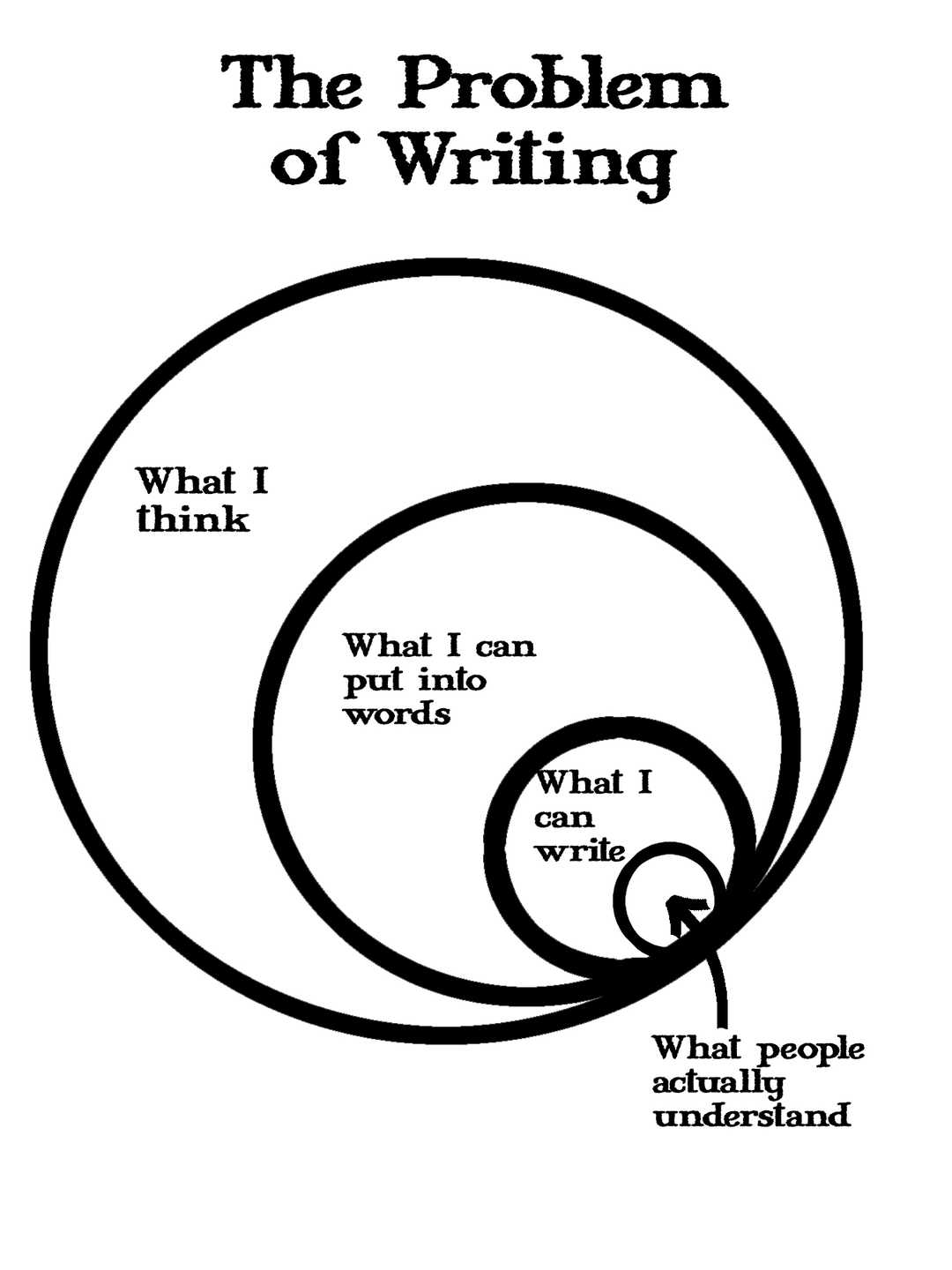This is the real problem in writing:
You, as a writer, can never completely communicate what you mean.
The structuralists tell us that words are made up of "signifiers" (phonemes, morphemes, sounds, spellings), and the "signified" (that which the word points to, the meaning and concepts they are addressing).
However, the meaning of a word is naturally ambiguous; a word, as a word, in and of itself, and the meaning to which it points are not naturally or necessarily linked.
For instance, the word right can refer to a number of things:
- the opposite of left,
- something that is morally good and justifiable,
- something that is true or correct as a fact,
- a moral or legal entitlement to have or obtain something or to act in a certain way,
- to restore to a normal or upright position,
- having the axis perpendicular to the base
- being in good physical or mental health or order, and
- to avenge, justify or vindicate.
Each of these meanings above have their own separate connotations and mental images. This means it is the reader who will choose the meanings of words. And no matter how hard you try, you're never going to be able to choose the meaning of each and every word for your readers.
Jacques Derrida calls this "slippage along the chain of signifiers." As such, it makes sense from a reader's perspective. Our job as writers, then, is to minimize the opportunities for slippage.
